Smartmushroom Project is a R&D project funded by European Commission under Horizon 2020 – Fast Track to Innovation Pilot call. The project aims to obtain a pelletized organic fertilizer from Spent Mushroom Substrate by implementing circular economy process. Project total budget is €2,977,936.61
Project Consortium is led by ASOCHAMP-CTICH (Spain), a professional association of growing substrate and mushroom growers in the main productive region in Spain. NOVIS (Germany) is an engineering SME with expertise in the energy production field of “hard-to-digest” residuals. IDECAL (Spain) is an engineering and innovation SME who has worked since 2010 on the development and commercialisation of tailored equipment in the field of food and agriculture technologies. ECOBELIEVE (Serbia) is an Eastern Europe regional leader in organic fertilizer production
Mushroom sector
Mushroom cultivation uses waste from livestock and agriculture for elaborating the growing substrate, which is made of c.a. 40% of manure and approx. 50% straw. When mushroom production is completed, the substrate remains “spent”, as it cannot be used for another mushroom growing cycle due to the depletion of nutrients and it is called “Spent Mushroom Substrate” (hereinafter SMS), becoming a waste that needs to be managed according to regulations on waste, fertilisers and nitrates. Approximately 3.3 tonnes of SMS are produced per each tonne of mushrooms and thus, SMS management is a significant challenge for mushroom growers. In Europe, mushroom growing generates annually more than 3.65Mtn of SMS that need to be managed according to regulations, with management costs that in average, amount 29.2 M€ for the sector annually.
Smartmushroom Project
SMARTmushroom develops a pilot plant (SMS-ADryer) that transforms waste to into pelletized organic fertilizer. The whole process does not rely on external sources of energy and hence it is carbon neutral. It is a perfect example of circular economy where an agricultural waste material is converted into a useful raw material making the EU agricultural sector more sustainable.
 SMS-ADryer plant will enable converting 36,000 tonnes of fresh SMS material annually that currently generates loses into 8,500 tonnes of organic fertilizer pellets with market value. SMS will be first digested thanks to a two-stage anaerobic digestion process using a new methanogenic consortia targeted to hardly-to-digest materials. The biogas produced provides up to 2.5MW of thermal power to an innovative water removal system based on a hybrid drying process that combines condensation and adsorption through sepiolite filters to accelerate the process and reduce costs. As a result, the SMS will reach 28% humidity and the resultant Dry Substance (DS) will be then enriched by natural NPK fertilizer, tailored to the specific needs of organic fertilizer purchaser, and pelletized. As a result, farmers using SMS-ADryer will achieve reduction in storage and transportation costs, enabling to sell to any region in Europe a new product which is organic and adapted to conventional broadcast spreaders.
SMS-ADryer plant will enable converting 36,000 tonnes of fresh SMS material annually that currently generates loses into 8,500 tonnes of organic fertilizer pellets with market value. SMS will be first digested thanks to a two-stage anaerobic digestion process using a new methanogenic consortia targeted to hardly-to-digest materials. The biogas produced provides up to 2.5MW of thermal power to an innovative water removal system based on a hybrid drying process that combines condensation and adsorption through sepiolite filters to accelerate the process and reduce costs. As a result, the SMS will reach 28% humidity and the resultant Dry Substance (DS) will be then enriched by natural NPK fertilizer, tailored to the specific needs of organic fertilizer purchaser, and pelletized. As a result, farmers using SMS-ADryer will achieve reduction in storage and transportation costs, enabling to sell to any region in Europe a new product which is organic and adapted to conventional broadcast spreaders.
Project demonstration activities
Smartmushroom pilot plant is operating to Improve biogas production by upgrading the biodigestion cycle of SMS through the demonstration of the methanogenic bacterial consortium, targeting to increase SMARTmushroom’s biogas obtained yields (122m3/t fresh SMS) by 25% obtaining 150m3 of biogas per tonne of fresh SMS treated (56 to 80% more than with competing anaerobic digestion technologies: 30-65m3/t). Also drying tests are been carried out in order to optimize drying times and temperatures to reach the highest efficiency in the process.
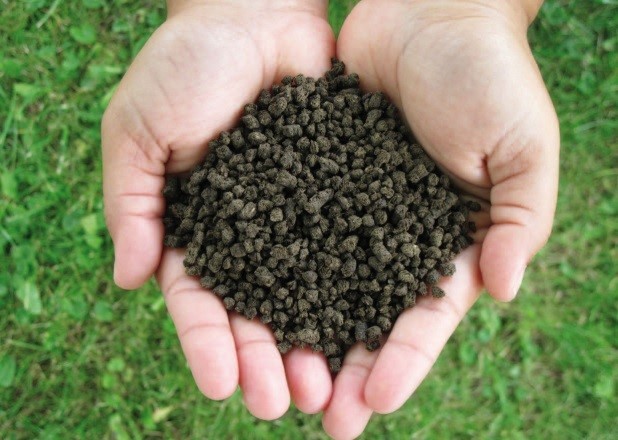 SMS based pellets have been tested in in different mixtures, by adding other nutrients (NPK), micronutrients and materials like zeolite and a large variety of crops (lettuce, tomato, cucumber, peeper, cabbage, cauliflower, celery, broccoli, wheat, wine grapes) in greenhouses and open field, these trials have shown very promising results, obtaining as principal benefits in comparison to traditional inorganic fertilizers, a better initial rooting and vegetative growth, earlier flowering, which has led to decrease in vegetative growth and equalization of vegetative growth with control plants and fruiting period has begun earlier.
SMS based pellets have been tested in in different mixtures, by adding other nutrients (NPK), micronutrients and materials like zeolite and a large variety of crops (lettuce, tomato, cucumber, peeper, cabbage, cauliflower, celery, broccoli, wheat, wine grapes) in greenhouses and open field, these trials have shown very promising results, obtaining as principal benefits in comparison to traditional inorganic fertilizers, a better initial rooting and vegetative growth, earlier flowering, which has led to decrease in vegetative growth and equalization of vegetative growth with control plants and fruiting period has begun earlier.
Main Impacts
SMARTmushroom revolutionizes mushroom production via its SMS-ADryer plant which converts mushroom production waste (SMS), currently generating cost, to an agriculture organic fertilizer. As a result, mushroom producers will increase their economic benefit. SMARTmushroom redefines the current mushroom production “take, make, dispose” extractive model to circular economy model, and thus decouples it from the consumption of finite resources, and designing waste out of the system.
The project addresses EU challenges related to low-carbon economy by carbon sequestrating, achieved in a natural, cost-effective, and environmentally-friendly way, enabling offsetting emissions from fossil fuel combustion; waste reduction by minimizing leaching and by absorbing waste coming from mushroom; circular economy principles by upcycling agricultural waste, improving the resource efficiency and agriculture and rural development by empowerding mushroom growers communities by increasing their margin and boosting employment and contributing towards more efficient and competitive agri-sector.
The new commercial organic fertilizer obtained from SMS will be a revolution for mushroom sector and could help tackle waste management problem. Each SMARTmushroom plant treating an average of 36,000 tonnes will save between €216,000-360,000 due to SMS management costs, while generates an additional turnover of c.a. €850,000 due to the sales of pellets for organic farming. Using SMARTmushroom solution, mushroom growers will increase their profits by 25%.


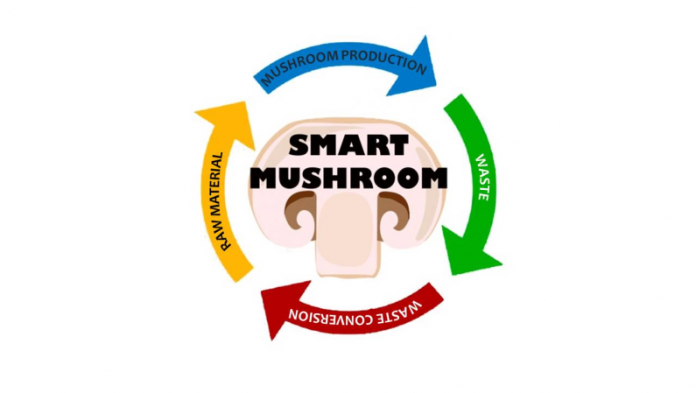

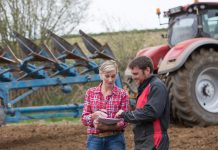

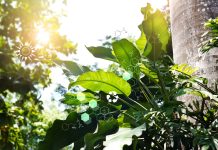
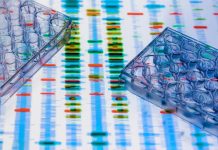
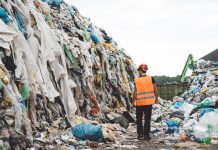




Good idea . we produce 4 tons of mushroom spent substrate as waste in my mushroom farms everyday. in Ghana
How can we team up. best regards